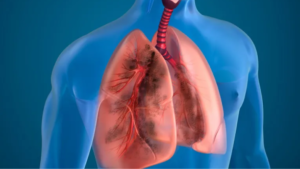

To the public, bacteriophages are both unfamiliar and familiar. Many readers likely recall the classic experiment from high school biology textbooks, where scientists Hershey and Chase used isotope-labeled bacteriophages to prove that DNA is the genetic material. Half of the 2018 Nobel Prize in Chemistry was awarded to recognize Smith and Winter for their contributions to phage display technology.As the name suggests, bacteriophages are the bane of bacteria. → As the name implies, bacteriophages are viruses that attack bacteria.
Since Alexander Fleming discovered penicillin, antibiotics have enjoyed over 90 years of remarkable history.However, the misuse of antibiotics in medical, breeding, cultivation, and food processing industries has also driven the emergence of multidrug-resistant or even pan-resistant superbacteria. Therefore, bacteriophage therapy, a treatment that predates antibiotic therapy, has regained attention. In fact, due to antibiotic shortages during the Cold War, bacteriophage therapy has been in use in Georgia, Russia, and Poland for nearly a century.
Infection following organ transplantation poses a major clinical challenge, particularly for patients with superbacterial infections, who often experience rapid onset, severe symptoms, and limited treatment options, leaving them highly vulnerable.Scientists have also begun exploring bacteriophage preparations to treat post-transplant superbacterial infections.This article will present two cases of bacteriophage therapy.
In 2017, the death of Mallory Smith, a young American woman, was tragic news for those following bacteriophage therapy. Mallory suffered from pulmonary fibrosis caused by a *Burkholderia cenocepacia* infection, which worsened at age 25.She and her family faced a dilemma: choosing between bacteriophage therapy, still in clinical trials, or a lung transplant. Despite the bacterial infection having spread to her chest cavity, the University of Pittsburgh Medical Center accepted Mallory and performed a lung transplant in September of that year. However, the infection recurred shortly after the transplant, and with no antibiotics available and her condition critical, Mallory’s family had to resort to bacteriophage therapy.
Through the urgent efforts of the treatment team, Mallory’s bacteriophage treatment protocol received emergency approval from the U.S. Food and Drug Administration, and news of the search for a suitable bacteriophage for Mallory spread worldwide via social media.However, the process of ethical approval and bacteriophage selection and preparation delayed the optimal treatment window, and although Mallory regained consciousness after 48 hours of bacteriophage therapy, she succumbed to her severe condition the following day [1,2].
Bacteriophage therapy could not save Mallory’s life in time, but the bacteriophage catalog website, https://phage.directory/, created by two other young individuals, Sacher and Zheng, inspired by Mallory, has compiled information on bacteriophage strains registered by researchers worldwide, greatly reducing the time needed to find phages in critical situations and helping prevent tragedies like Mallory’s from recurring [2].
At the 38th Annual Meeting of the International Society for Heart and Lung Transplantation in 2018, Aslam et al. from the Phage Therapy and Innovation Center at the University of California, San Diego, reported another case of bacteriophage therapy in a lung transplant recipient.The patient developed a postoperative infection with pan-resistant *Pseudomonas aeruginosa*, and after receiving intravenous and aerosolized bacteriophage cocktail therapy, phage-resistant strains emerged; however, these new strains exhibited reduced antibiotic resistance, enabling successful treatment with a combination of bacteriophages and antibiotics [3].This successful case highlights the promising future of bacteriophage therapy in treating acute bacterial infections.
The Shanghai Bacteriophage and Drug Resistance Research Institute, established at the Shanghai Public Health Clinical Center (South Campus of Zhongshan Hospital Affiliated with Fudan University), initiated a clinical trial of bacteriophage therapy for superbacteria in early 2018. On August 14 of that year, the first enrolled patient recovered and was discharged after bacteriophage therapy, ending years of suffering from a urinary tract infection caused by superbacterial Klebsiella pneumoniae.. This marked the first ethically approved case of bacteriophage therapy in China [4].In May 2018, a clinical trial of bacteriophage therapy, jointly proposed by the Institute and the Shanghai Key Laboratory of Organ Transplantation, was approved by the Ethics Committee of Zhongshan Hospital Affiliated with Fudan University, providing transplant patients with an additional option when antibiotic therapy fails.
Currently, bacteriophage therapy remains in the clinical trial phase.Further advancements are needed in the efficacy and safety of bacteriophage preparations, bacterial resistance to phages, and the timeliness of phage selection and preparation. Bacteriophage therapy will undoubtedly prove highly effective in preventing and treating superbacterial infections following organ transplantation.
Notice:
[1] (To save a young woman besieged by superbugs, scientists hunt a killer virus)https://www.statnews.com/2017/11/10/superbug-phage-mallory-smith/
[2](A patient’s legacy: Researchers work to make phage therapy less of a longshot)https://www.statnews.com/2017/11/28/phage-therapy-mallory-smith/
[3] (Bacteriophage Treatment in a Lung Transplant Recipient)
[4] Chinanews.com, Shanghai: the Superbug infected patient was cured by phage therapy and discharged from hospital
https://mp.weixin.qq.com/s/omUTzy3q3zE1sbKeT42TgA
Article, edited | Wu Nannan, photography|Nico Ding
This article is an original article of”Kidney Transplantation, sun yat-sen hospital, Fudan University”. It is reproduced with the author’s permission. For kidney care, you can start by following the public wechat of”Kidney Transplantation of sun yat-sen hospital affiliated to Fudan University”,readA medicine for “eternal youth” for organ transplant patients, which can slow down aging and extend lifespan.



